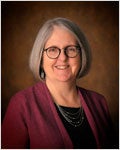| The American Academy of Family Physicians (AAFP), American Academy of Pediatrics (AAP), American College of Obstetricians and Gynecologists (ACOG), American College of Physicians (ACP), the Centers for Disease Control and Prevention (CDC), and the Immunization Action Coalition (IAC) all recommend that you vaccinate your patients against human papillomavirus (HPV) on time and according to the U.S. immunization schedule. |
|
| HPV vaccine is cancer prevention, yet HPV vaccine is underutilized in our country despite the overwhelming evidence of its safety and effectiveness. While vaccination rates continue to improve for the other adolescent vaccines, HPV vaccination rates have not. Missed opportunities data suggest that providers are not giving strong recommendations for HPV vaccine when patients are 11 or 12 years old. The healthcare provider recommendation is the single best predictor of vaccination. Recent studies show that a patient who receives a provider recommendation is four to five times more likely to receive the HPV vaccine. |
|
| Recommendations for the use of HPV Vaccines |
|
| Three HPV vaccines (2-valent [HPV2], 4-valent [HPV4], and 9-valent [HPV9]) are available to protect against HPV 16 and 18, the types that cause most cervical and other anogenital cancers, as well as some oropharyngeal cancers. HPV4 and HPV9 protect against additional HPV strains, including most anogenital warts. |
|
| For 11- to 12-year-olds |
|
| The Advisory Committee on Immunization Practices (ACIP) recommends the following: |
|
| • |
|
Routine vaccination of girls at age 11 or 12 years with the three-dose series of any of the three HPV vaccines (HPV2, HPV4, HPV9). |
|
|
|
| • |
|
Routine vaccination of boys age 11 or 12 years with the three-dose series of HPV4 or HPV9. |
|
|
| According to ACIP, HPV vaccination for boys and girls may begin as early as 9 years of age. |
|
| For those 13 years old and older (who have not completed the three-dose series) |
|
| • |
|
For females, completion of a three-dose series using HPV2, HPV4or HPV9, is recommended through age 26 years. |
|
|
|
| • |
|
For males, a three-dose series using HPV4 or HPV9 is routinely recommended through age 21 years, but it can be administered through age 26 if desired. Vaccination is also recommended through age 26 for men who have sex with men and for immunocompromised persons (including those with HIV infection). |
|
|
| Your recommendation is the number one reason why someone will get the HPV vaccine and be protected from HPV-associated cancers and disease. |
|
| This article was adapted from a “Dear Colleague” letter from AAFP, AAP, ACOG, ACP, CDC and IAC, issued on Feb. 12, 2014. |
|
| HPV resources |
|
| CDC Information for Healthcare Professionals |
|
|
|
|
| IAC Information to Give to Patients |
|
|
|
|
| IAC Information to Assist Healthcare Professionals |
|
|
|
|
| From The Children’s Hospital of Philadelphia’s Vaccine Education Center |
|
|
|
|
| Free Continuing Education Opportunities |
|
| • |
|
CDC and the National Area Health Education Center Organization have developed an online self-study program on HPV vaccination for healthcare professionals. Watching You Are the Key to HPV Cancer Prevention: Understanding the Burden of HPV Disease, the Importance of the HPV Vaccine Recommendation, and Communicating about HPV Vaccination can provide physicians, nurses and pharmacists with free continuing education credit. To access this course, go to https://nationalahec.org and click on the “FREE CE OPPORTUNITY” button on the home page. |
|
|
|
| • |
|
Watch the film Someone You Love: The HPV Epidemic — Indiana University School of Medicine designates this enduring material for a maximum of 1.50 AMA PRA Category 1 Credits. |
|
|
|
